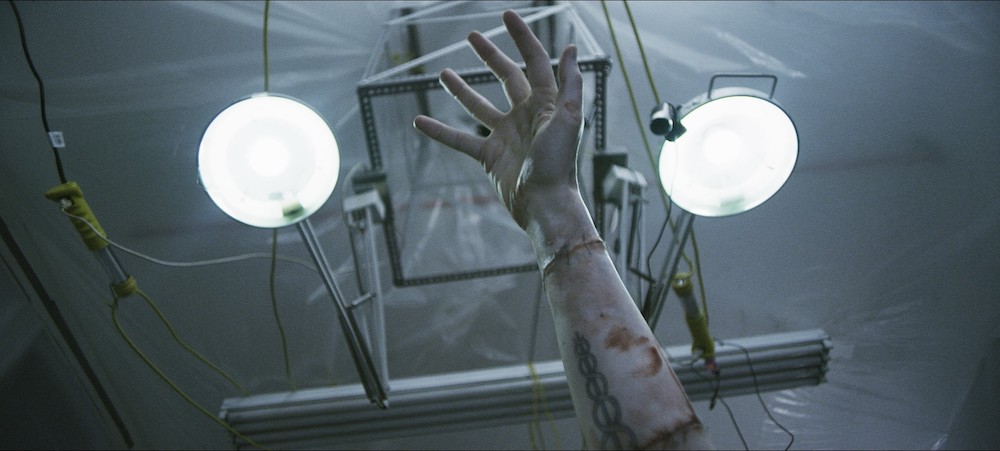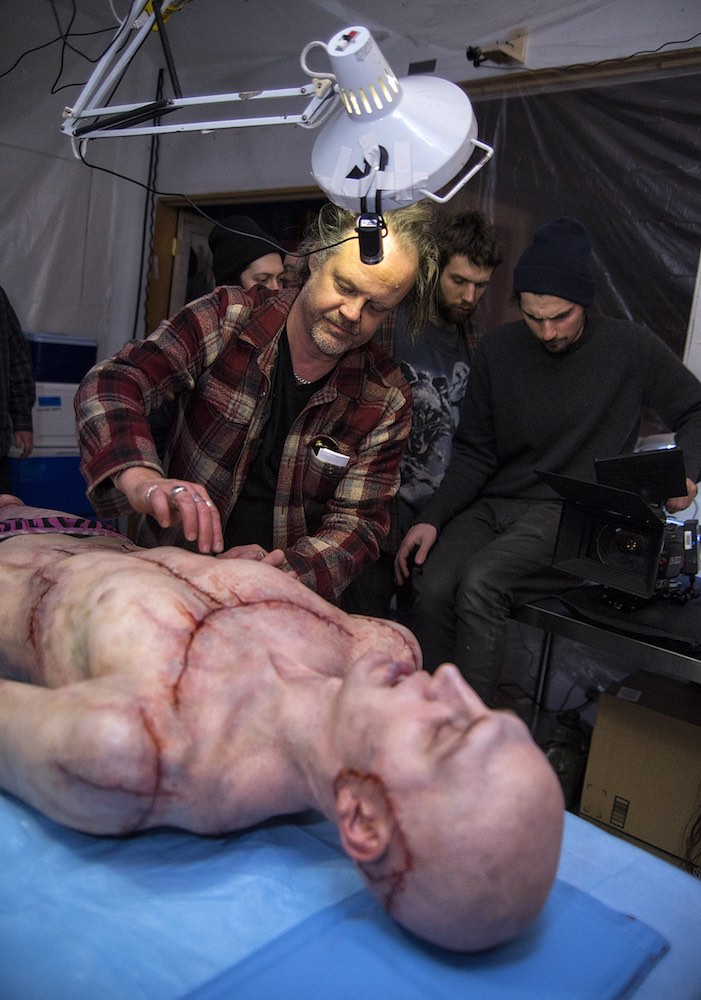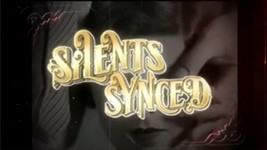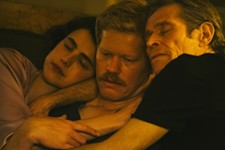Horror Director Larry Fessenden Gets Depraved
Indie cinema's king of fear on creating a very modern Prometheus
By Richard Whittaker, 5:00PM, Fri. Sep. 27, 2019
As indie cinema's king of fear, Larry Fessenden has made a career finding the intersection of humanity and horror. With Depraved, his modern version of Frankenstein, where terms man and monster are so constantly switched and conflated, he may have found the perfect story for him to retell.
With commentary on America's endless war on terrorism, its newer war on opioid addiction, and the power of big pharma, Fessenden described his version of Mary Shelley's foundational text as being born of "a societal discomfort" about a multiplicity of modern issues. When he started writing the script in the mid-Aughts, he said, "There was a bait-and-switch over our anxieties over 9/11, and American has all kinds of dependency issues – it was crystal meth before opioids – and I'd been interested in modern medicine versus other approaches."
It's been a long, slow process getting Depraved made, but in the meantime Frankenstein has remained part of Fessenden's life. In 2014, he directed the video for "Frankenstein Cannot Be Stopped" for the band Life In A Blender, complete with an old school Universal flat-top neck-bolt Frankenstein's monster. Then, in The ABCs of Death, in Fessenden's segment "N is for Nexus," he said, "I used the same mask, and the same actor played Frankenstein in that one."
Austin Chronicle: There's so many versions of Frankenstein: how do you avoid repeating or echoing something that somebody else already did with it?
Larry Fessenden: One thing you do is that you don't obsess over the other movies. Of course, some of them are part of my DNA, part of my upbringing. The Karloff movies from the 1930s were very seminal to my development as a person, and I related to it, and I just find the makeup to be mesmerizing. The subsequent versions, well, certainly the Hammer films are classics in their way. But when you were a kid you made models of the monster, you had it on cereal boxes and toys and games. You had The Munsters on television. But to be distracted by that would be to lose focus on the fundamental story.
There's also the experience in most horror fan's lives when they actually read the book, and it's startling because it's not scary in the way that you might imagine. It's its own journey, and then your mind expands to what this story is really about – loneliness, and being an outsider.
So I had all those experiences, and I'v always liked bringing a more modern, Seventies sensibilities to these stories – like I did with a movie i did called Habit. It was a vampire story, but from the streets of Taxi Driver or Mean Streets, and I wanted to do that with Frankenstein, and I really didn't obsess over whether I was worthy or what was happening.
I was a little worried because in the time I was setting the project up there were at least five new Frankenstein movies, including Bernard Rose's Frankenstein, I, Frankenstein, there was Victor Frankenstein, Penny Dreadful had a great Frankenstein theme. So it wasn't like I was inventing the wheel here. I was reinventing it, and I knew that it was somewhat of a tired story, and I suspect that's why I couldn't get much traction with the bigger money. But eventually I decided to make it, and I had enough confidence in my own intuitive love of the story that I would make something unique – unique to me, not that anybody needs to see that – but I wasn't going to be distracted by the other versions.
AC: You mentioned how the book changes people's perspectives if they saw the film first, and one thing that's strange is how so many versions are about the creation of the monster, whereas Shelley mutters a sideways reference to galvanism, and that's it.
LF: I was just joking with someone about the Kenneth Branagh version with the electric eels, and wondering, "Where the fuck did that come from?" and it's because someone was thinking about the electricity in the Karloff movie, and they came up with this thing with the eels. I thought, this shows how offtrack things have gone, because Mary Shelly gives it one sentence and not another thought.
AC: So what was it that you thought was going to be the angle that would make this version uniquely yours?
LF: The thing that inspired me was the basic question of what it would be like to be the monster, and then I came up with this structure, where you are one character and then you pass the baton and become the Frankenstein monster, and you experience life bewildered, and what it is like to grow up. I think that's something that any artist can access, because you're a kid and you have parents that you don't understand, and the world becomes more and more mean and aggressive as you realize there's conflict and struggle between people. And then right when that reached a critical and interesting place, I killed the monster: and I'd wake up, and now I'm the doctor, and he's afraid of the thing that, as an audience member, you were identifying with for the first half of the movie.
So there's a conceit there, and it's really my ongoing interest in trying to understand what it's like to see the world from another perspective, and in this case the device of Frankenstein seemed like a really cool way to do that.
The irony is that the book, and many books of its time including Dracula, took that form where they were often written as letters so you get to see the first person perspectives of different characters. In the book the monster gets a whole section where he explains his life out on his own.
AC: One thing that makes your different is that the story normally concentrates on the doctor or the monster, and overlooks the people who became the parts of the monster. He's not a tabula rasa – they were all somebody before.
LF: It's funny, you're stating the obvious, but you're right. The monster is objectified. You might have sympathy for him, like in Karloff's performance, but he's still an object of otherness, We wanted to make a movie which is very much about identifying with the other – the outcast, the marginalized, the perplexed. That's what interested me, and oddly enough it fits with the current conversation about identity, without it being my agenda.
AC: And something that's so pivotal is this idea that the monster is starting to remember who he was before. There's an almost synesthetic quality of those parts of his mind reconstructing, and the growing sense of loss he feels.
Polidori (Joshua Leonard) at one point says, "We gave you life, and what did you do? You squandered it." He's such an unreliable asshole by then that I don't think you really listen to the meaning of it, but in a way it's true. It's funny hearing it from Polidori, who has clearly squandered his opportunities in life by being an asshole, but there is that fundamental reality. It's this other kind of a tragedy that the people who adapt the Frankenstein story don't always think about.
AC: You've been drawn to so many iconic monsters. You've done vampires, you've done the Wendigo – and I'm always astounded that there aren't more Wendigo films – and the classic creature feature with Beneath. Now you've done Frankenstein's monster: Is there another monster that you have that creative itch about?
LF: I want to do a real werewolf movie. ... I have this notion of not trying to raise the big bucks any more, because it's too exhausting and it didn't serve me very well, but if I can find a small amount of money I have in mind a werewolf movie. Then my joke is that I'd have my Frankenstein, my werewolf and my vampire in a movie. Now wouldn't that be a funny response to the Universal classics?
Depraved is in cinemas and on VOD now. For our full review and listings, check our Showtimes page.
A note to readers: Bold and uncensored, The Austin Chronicle has been Austin’s independent news source for over 40 years, expressing the community’s political and environmental concerns and supporting its active cultural scene. Now more than ever, we need your support to continue supplying Austin with independent, free press. If real news is important to you, please consider making a donation of $5, $10 or whatever you can afford, to help keep our journalism on stands.
June 27, 2024
June 28, 2024
Depraved, Larry Fessenden, Frankenstein










